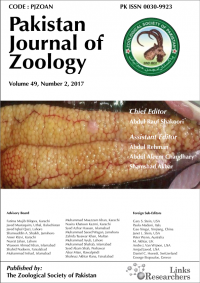This study was conducted to evaluate the effect of bee pollen (BP) supplemented diet on performance, egg quality and some blood parameters of laying hens. A total of 96 Lohmann layers, 28 weeks of age, were randomly allocated to four dietary treatments and fed a control diet (Pol-0), basal diet plus 0.5% (Pol-1), 1.0% (Pol-2) and 1.5% (Pol-3) bee pollen. The present study lasted for twelve weeks. During the experimental period, the hens were fed ad-libitum and water was available all the times. The hen house was lit for 17 h. The layers fed with diets including BP showed linear increases in final body weight and body weight changes calculated from initial and final body weights at the end of the trial. The supplementation of bee pollen into layer diet linearly decreased feed intake and linearly increased feed conversion ratio. The inclusion bee pollen at different levels affected the egg weight (quadratic), yolk index (linear), Haugh unit and albumen index (cubically). On the other hand, supplemental bee pollen linearly decreased cholesterol, triglyceride and P values and linearly increased Mg value in the serum parameters. However, the other serum parameters were not affected by the treatment. In conclusion, supplementation of bee pollen during the study period improved the feed conversion ratio and decreased serum cholesterol and lipid contents. In addition, according to economic analysis, the net income for hen fed 1.5% BP addition dietincreased by about 0.62% compared to control group. Therefore, bee pollen may be used in laying hen diets because of its psitive effects on FCR, serum cholesterol and lipid contents.










